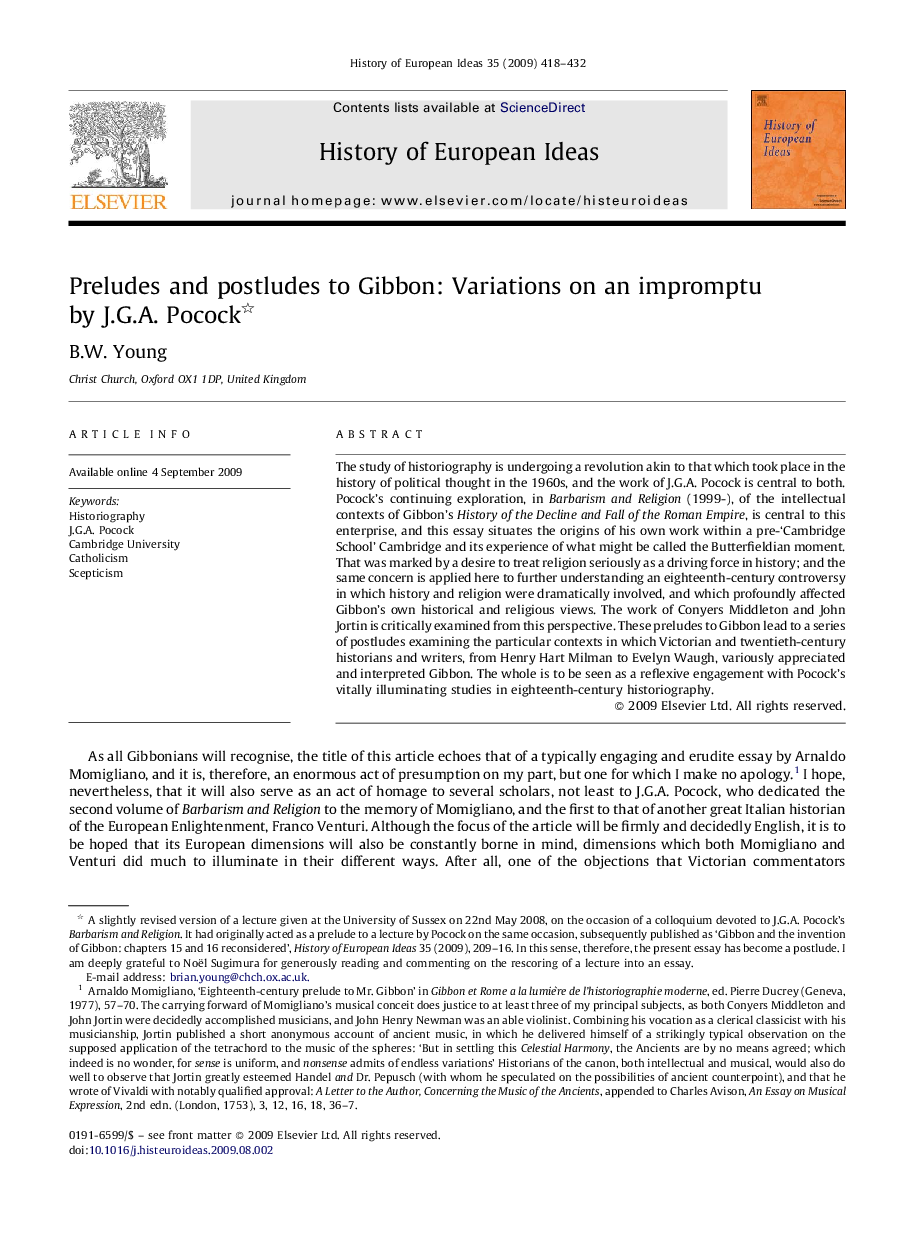| Article ID | Journal | Published Year | Pages | File Type |
|---|---|---|---|---|
| 1159077 | History of European Ideas | 2009 | 15 Pages |
Abstract
The study of historiography is undergoing a revolution akin to that which took place in the history of political thought in the 1960s, and the work of J.G.A. Pocock is central to both. Pocock's continuing exploration, in Barbarism and Religion (1999-), of the intellectual contexts of Gibbon's History of the Decline and Fall of the Roman Empire, is central to this enterprise, and this essay situates the origins of his own work within a pre-'Cambridge School' Cambridge and its experience of what might be called the Butterfieldian moment. That was marked by a desire to treat religion seriously as a driving force in history; and the same concern is applied here to further understanding an eighteenth-century controversy in which history and religion were dramatically involved, and which profoundly affected Gibbon's own historical and religious views. The work of Conyers Middleton and John Jortin is critically examined from this perspective. These preludes to Gibbon lead to a series of postludes examining the particular contexts in which Victorian and twentieth-century historians and writers, from Henry Hart Milman to Evelyn Waugh, variously appreciated and interpreted Gibbon. The whole is to be seen as a reflexive engagement with Pocock's vitally illuminating studies in eighteenth-century historiography.
Keywords
Related Topics
Social Sciences and Humanities
Arts and Humanities
History
Authors
B.W. Young,
